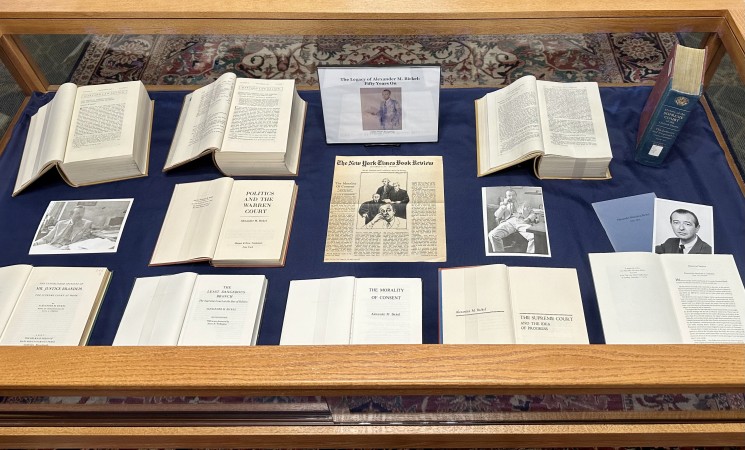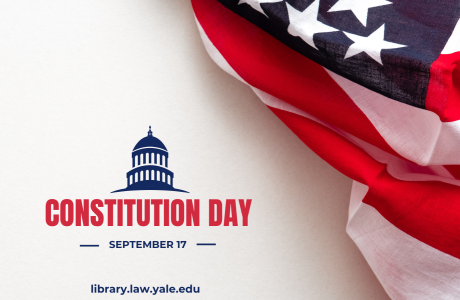New Book Display - The Legacy of Alexander M. Bickel: Fifty Years On

This month marks the 50th anniversary of the death of Professor Alexander Mordecai Bickel, who served on the Yale Law faculty from 1956 until his untimely death in 1974. One of the most influential constitutional theorists of the last century, Bickel’s work championing judicial restraint has shaped the thinking of Supreme Court justices and leading legal scholars alike. Earlier in his career, as a clerk to Justice Felix Frankfurter, he prepared a historic memo urging that Brown v. Board of Education, 347 U.S. 483 (1954), be reargued, giving the Court time to reach consensus around outlawing segregation. In the final years of his life, he successfully argued for the petitioner in New York Times Co. v. United States, 403 U.S. 713 (1971) (the “Pentagon Papers Case”), which held that the First Amendment protects the right of the press to publish classified information without prior restraint.
This exhibit, created by Ashley Mehra, a second-year law student, and Nicholas Mignanelli, Assistant Director for Reference at the Lillian Goldman Law Library, contains first editions of Bickel’s scholarly monographs, original copies of his most-cited law review articles, and selected ephemera and photos from the files of the Office of Public Affairs. This exhibit serves as a companion to “The Legacy of Alexander M. Bickel,” an event featuring Professors Anthony T. Kronman and Owen M. Fiss scheduled for Thursday, November 7, at 12:10 p.m. in SLB Room 124.
A bibliography of the materials in the exhibit is found below.
Articles:
Books:
Alexander M. Bickel, The Least Dangerous Branch: The Supreme Court at the Bar of Politics (1962).
Alexander M. Bickel, Politics and the Warren Court (1965).
Alexander M. Bickel, Supreme Court and the Idea of Progress (1970).
Alexander M. Bickel, The Morality of Consent (1975).
Ephemera:
Alexander Mordecai Bickel, 1924 - 1974: Memorial Service (Nov. 17, 1974).

